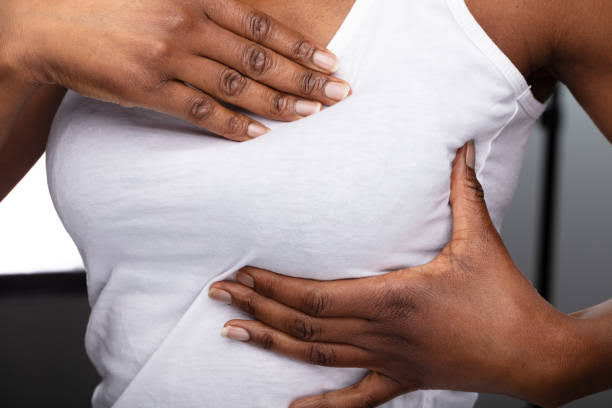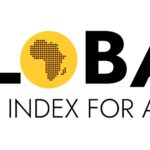For years, Felicia Osas always shied away from conversations about breast cancer. Having heard a close friend once say that regular fondling of the mammary organs kept the lump away, Felicia encouraged the practice in her relationship. She took great pride in believing she was immune to it.
Like Felicia, some men subscribe to this belief. Some of the men who spoke to Prime Progress echoed this sentiment. Although he couldn’t remember where he heard it, the “knowledge” has stuck with him for years, said one who identified himself as Muyideen Tunde. “I will joyfully suck away any form of cancer from the breast of my woman. I believe this will help in her protection and prevention of complications,” he said.
This sentiment is equally prevalent on the Internet, with news headlines championing the belief. In 2017, a news headline tweeted: “Suck women’s breasts to stop cancer—Expert.” The post has since generated more than 18,000 retweets and 8,000 likes. Similarly, commenting under a breast-examination post, a social-media influencer declared: “Suck a breast [sic] today.”
Globally, breast cancer, which occurs when abnormal cells in the breast grow and form tumors, is a significant health concern. In 2022, at least 2.3 million new cases were diagnosed among women, with 670,000 fatalities. Although the disease affects both men and women, incidences of breast cancer in men are few and far between. This disease affects women of all ages, from puberty onward, with the risk increasing significantly in later life.
In Nigeria, a staggering 28,380 new cases—representing 22.7% of all new cancer cases in the country—were reported in 2020, according to the International Agency for Research on Cancer (IARC). As such, breast cancer is the most prevalent type of cancer in Nigeria.
Breastfeeding, not Breast Sucking
Dr. Usha Anenga, an eminent gynaecologist and the Vice President of the Nigerian Medical Association, refutes this claim.
“It is breastfeeding that reduces the chances of breast cancer, not just grown men sucking the breast with no milk being produced,” he said. The protective effect comes from hormonal changes during the physiological production of milk and breastfeeding, which, as Dr. Anenga explained, help regulate the breast tissue, thereby reducing the risk of developing cancer. Simply sucking the breast without the context of breastfeeding does not confer the same benefits.
Scientific research has proven that breast sucking is not an effective prevention measure for breast cancer.
Breastfeeding offers a multitude of benefits, including reduced risk of breast cancer. Scientific research has confirmed that mothers who breastfeed have a lower risk of both pre- and post-menopausal breast cancer.
Moreover, breastfeeding for longer than the recommended six months can provide even stronger protection, as this triggers hormonal changes that delay menstrual periods and reduce a woman’s overall exposure to hormones. With breastfeeding, women can lower their lifetime risk of breast cancer and experience numerous other health benefits.
How can men help?
While stimulating the breasts with the lips is a significant part of foreplay, reports reckon that it could help in the detection of breast lumps. An oncologist, who contributed to a report by Premium Times, confided that five of his patients had discovered lumps in their breasts through their spouses.
In this regard, husbands are encouraged to learn how to examine the breast to enhance early detection of cancer in their wives. Early detection and diagnosis are crucial, and a healthcare professional can provide guidance and reassurance—or develop an effective treatment plan if needed.
Nevertheless, the importance of self-examination cannot be overemphasized. “Women can feel it themselves,” said Dr. Anenga, as they are more acquainted with the shape of their breasts.
Years later, Felicia felt a sharp pain under her armpit one day. After she ignored it for months, the pain grew so persistent that she hurried to the hospital one morning, to hear the news that she harbored a lump in her right breast.
“False assurance” was all Felicia could mutter as she sat in her room, ruing her ill-informed beliefs about a disease that continues to haunt millions of young women around the world.
Many people, including Felicia Osas and some men in Nigeria, mistakenly believe that breast sucking can prevent breast cancer. This myth is perpetuated online and by social media influencers. However, Dr. Usha Anenga, a gynecologist, clarifies that only breastfeeding, not breast sucking, can reduce the risk of breast cancer through hormonal changes that regulate breast tissue. Scientific research supports this, indicating that breastfeeding lowers the risk of both pre- and post-menopausal breast cancer.
Men can help in early cancer detection by learning breast examination techniques, as early detection is vital. Felicia’s experience underscores the danger of false security; she ignored persistent pain in her armpit until it was diagnosed as a lump in her breast, regretting her mistaken beliefs. The importance of self-examination and professional guidance is emphasized for effective prevention and treatment of breast cancer.






